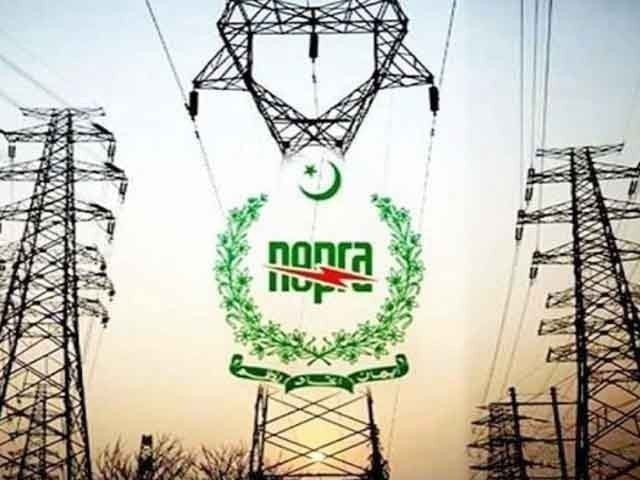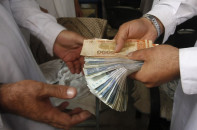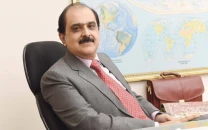Power sector losses hit Rs281 Billion in 2023-24 fiscal year
K-Electric reported the highest number of fatalities, with 34 deaths, including 32 civilians and 2 company employees.

Pakistan's electricity companies suffered a loss of Rs281 billion in the 2023-24 fiscal year due to poor performance, according to a new report from the National Electric Power Regulatory Authority (NEPRA).
Despite a surge in electricity demand, power companies failed to utilise cheaper power plants, exacerbating the financial strain, Express News reported.
The report, which assesses the performance of electricity transmission and distribution companies, revealed that these companies failed to meet loss reduction targets once again.
In addition to the financial losses, NEPRA noted that poor recovery rates in the sector led to a Rs380 billion shortfall in the national treasury.
Over the course of the year, more than 3.4 million complaints were registered against the companies, many of them related to poor service and billing issues.
The report also highlighted serious safety concerns, with 140 fatalities occurring in areas under the management of power distribution companies.
K-Electric, which manages electricity distribution in Karachi, reported the highest number of fatalities, with 34 deaths, including 32 civilians and 2 company employees.
NEPRA called for stricter adherence to safety standards, citing a need to address the rising number of accidents and fatalities. The regulator further stressed the importance of operational improvements to prevent such incidents and reduce financial losses in the sector.
KE seeks NEPRA nod for Rs68b write-offs
K-Electric's plea for Rs68 billion in write-off claims dominated a recent hearing convened by the National Electric Power Regulatory Authority (Nepra), highlighting the financial hurdles and operational complexities of managing Karachi's power supply. The claims span multiple fiscal years under the utility's Multi-Year Tariff (MYT) framework, underscoring challenges unique to the city's socio-economic landscape, according to a statement issued Tuesday.
The write-offs stem from Nepra's 2018 decision, which introduced a mechanism for recovery loss provisions. The utility reported Rs119 billion in bad debts in its audited accounts but sought Nepra's approval for Rs68 billion, citing rigorous internal and external verifications.
A focal point of the hearing was whether write-offs from FY2016, under a prior MYT regime, could be considered in the current tariff period. KE argued that these claims represent legacy liabilities rather than current receivables and maintained that Nepra's guidelines do not restrict claims to specific fiscal years. KE CEO Moonis Alvi called for policy consistency to ensure fairness, the statement noted.
Nepra scrutinised KE's recovery efforts, including disconnection drives, external agency engagements, and instalment payment schemes. While KE's recovery rate peaked at 95.4% in FY2022, macroeconomic instability and tariff hikes have since undermined these gains. Illegal reconnections and the city's dense socio-economic fabric continue to pose significant recovery challenges.
KE assured regulators that its claims exclude double-dipping, explaining that doubtful debt provisions were not factored into its operations and maintenance (O&M) costs under the MYT framework. The utility explained that the claims strictly pertain to unrecovered billed amounts verified through exhaustive procedures.
The enduring issue of illegal "hook" connections in unauthorised settlements also emerged during discussions. KE stated it had reduced hook connections from 4% to 0.2% but admitted that certain areas remain problematic due to a lack of regulatory enforcement. The utility clarified that write-offs relate exclusively to billed amounts and not to unbilled energy theft, which it handles separately.
Nepra officials raised concerns over verification mechanisms to avoid duplication and pressed for clarity on KE's disconnection and recovery policies. KE outlined its theft deterrence measures, such as aerial bundled cables, and defended its approach by citing international regulatory practices, which often allow similar provisions for utilities operating in complex urban environments.
Stakeholders expressed mixed opinions during the hearing. Some warned against passing write-off burdens onto consumers already facing steep electricity tariffs. Others advocated for a transparent and consistent regulatory framework to address legacy financial issues.
As the hearing concluded, KE reaffirmed its commitment to operational improvements and reiterated that its claims align with Nepra's stipulated conditions. The utility emphasised that the resolution of such claims is crucial for ensuring financial sustainability in Pakistan's power sector, according to the statement.
The outcome of Nepra's deliberations is expected to set a significant precedent for addressing fiscal challenges in the energy sector.



















COMMENTS
Comments are moderated and generally will be posted if they are on-topic and not abusive.
For more information, please see our Comments FAQ